Our Science
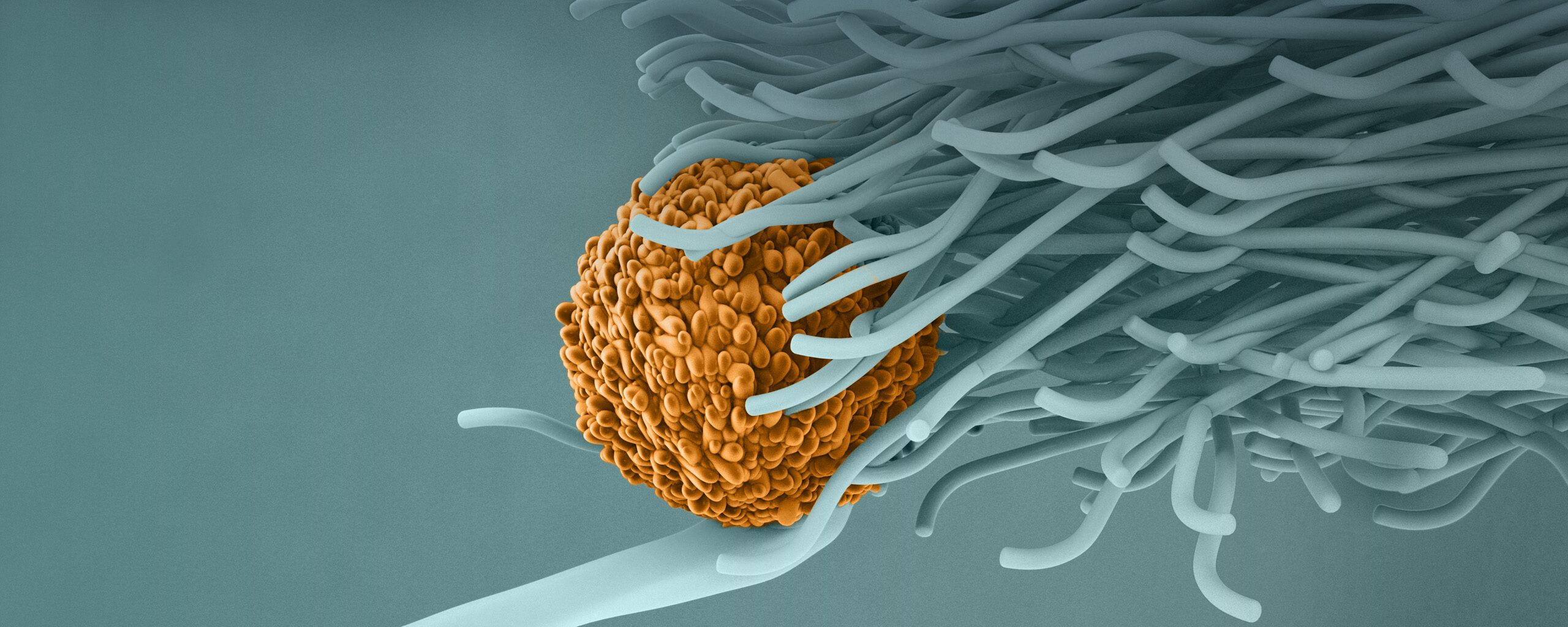
Modulating Immune Function
Our bodies respond to inflammatory stimuli (like a pathogenic infection) with a protective inflammatory cascade. This inflammatory response is tightly regulated by molecular mechanisms involving circulating antibodies, which can re-establish homeostasis after an infection clears. Antibodies can be either pro-inflammatory or anti-inflammatory depending on a switch located on a specific part (Fc domain) of immunoglobulin G (IgG) antibodies. When antibodies are coated with a sugar group (sialylation), they can bind to Type II Fcγ receptors, which returns the immune environment to an anti-inflammatory (tolerant or vigilant) state.
Limitations of IVIg Immune Modulation
IVIg immune modulation is effective in treating autoimmune diseases, but is limited by supply & preparation as a blood product therapy with inherent safety risks and narrow therapeutic window.
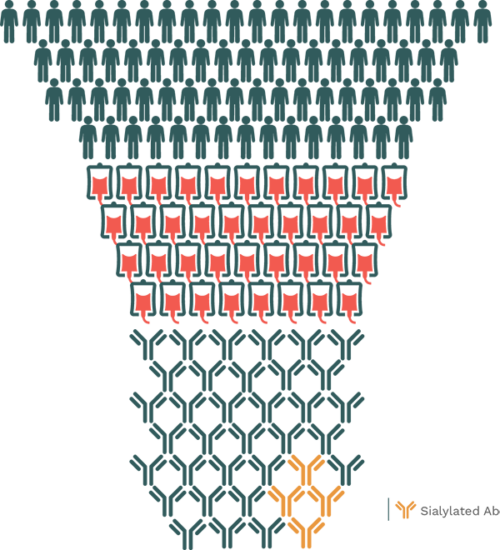
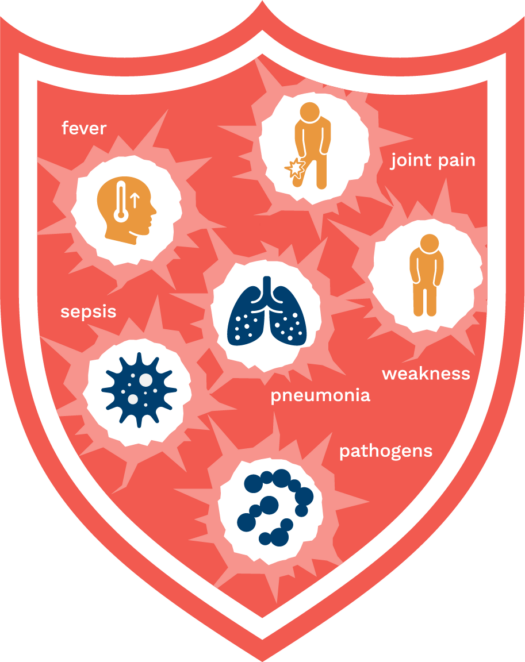
Limitations of Immunosuppression
Most autoimmune therapies suppress immune function, which can poke holes in the immune system's defense shield, presenting significant infection risks to patients.
NVG-2089
NVG-2089 triggers our bodies’ endogenous regulatory mechanisms to reduce autoimmune dysregulation without immunosuppression. NVG-2089 is designed to mimic the binding of sialylated IgG to immunomodulatory Type II Fcγ receptors. A Phase 1 clinical study demonstrated the safety and tolerability of NVG-2089 in healthy volunteers. NVG-2089 is currently in a Phase 2 clinical trial in Europe and the U.S. The trial, called INVGOR, is evaluating the safety, tolerability, and potential clinical benefit in individuals with chronic inflammatory demyelinating polyneuropathy (CIDP). For more information, contact our clinical trials team.
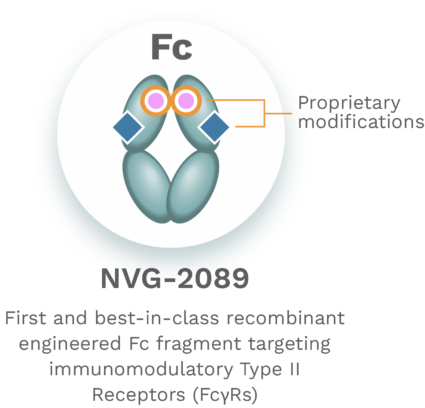
Our Platform
At Nuvig, we incorporate our engineered Fc into full-length antibodies to create bi- and tri-functional antibodies. We call this BESTech™ (Biologic Enhancement of Self Tolerance).
In preclinical experiments we observed substantially enhanced efficacy with the combination of our BESTech Fc and an anti-cytokine variable region (e.g. together, a BESTech mAb) vs. the wild-type antibody. We believe BESTech can be applied to multiple anti-inflammatory targets.
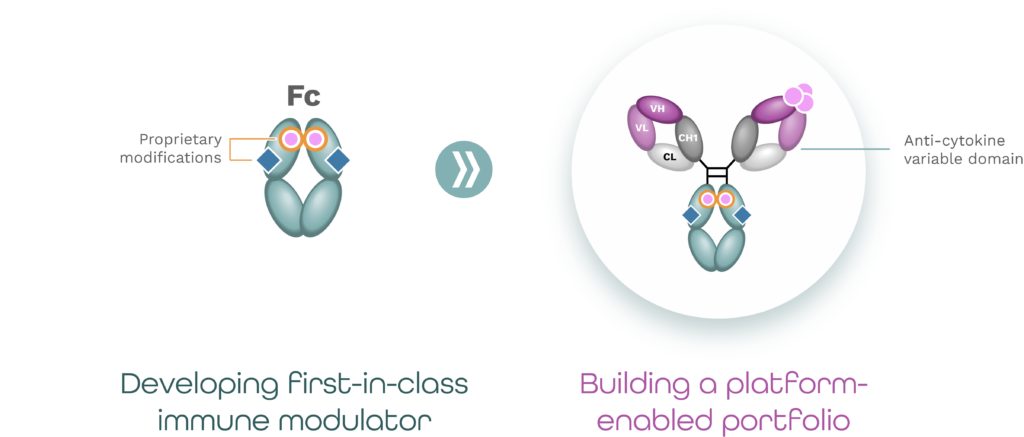
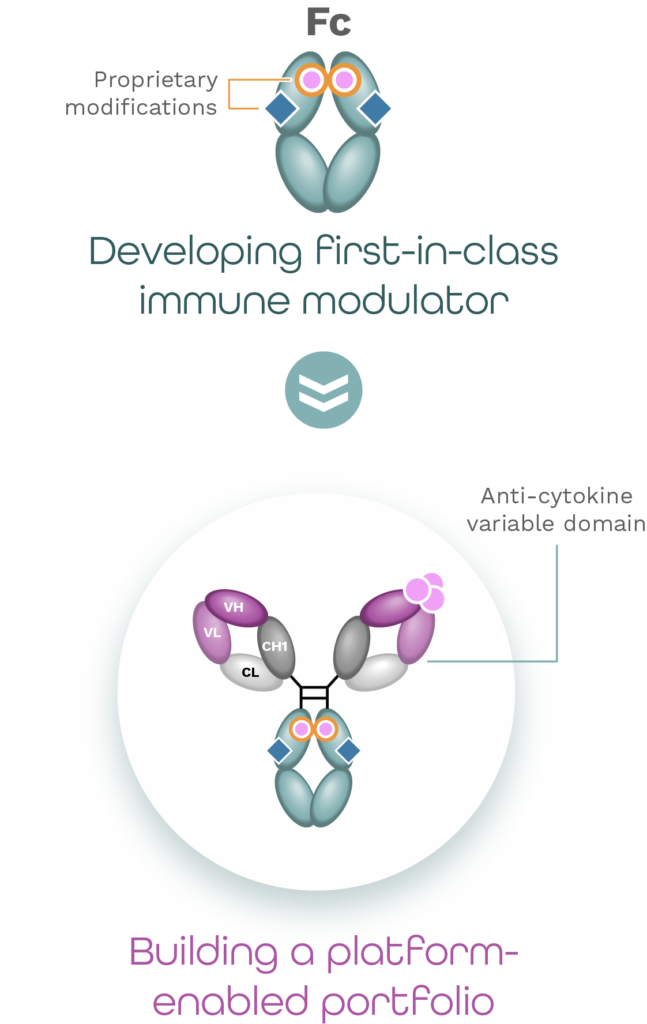
See our therapeutic areas.
